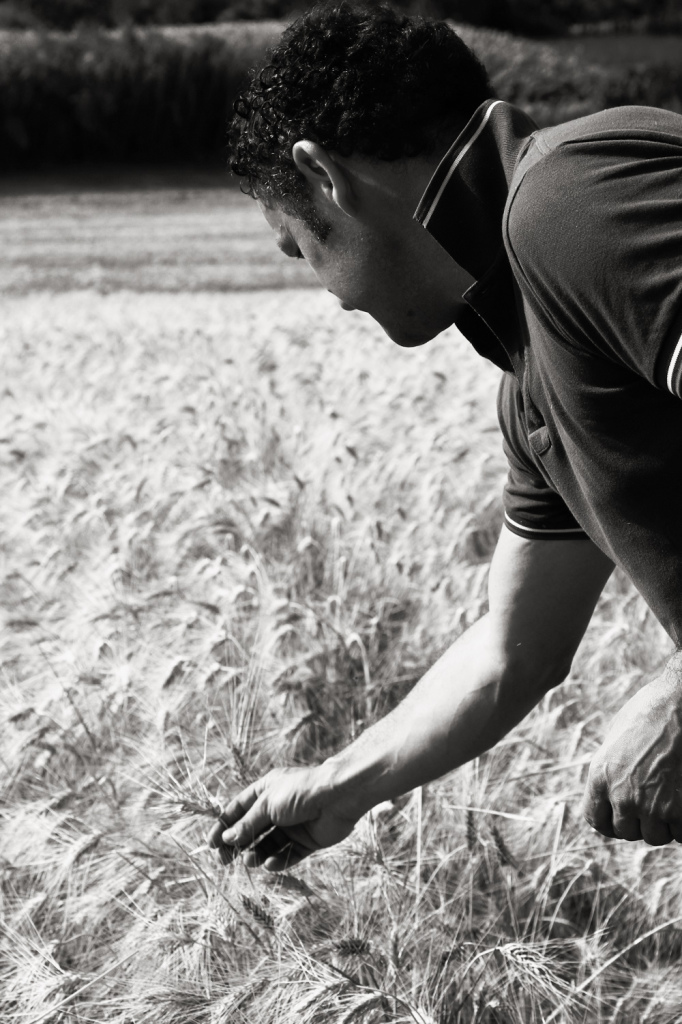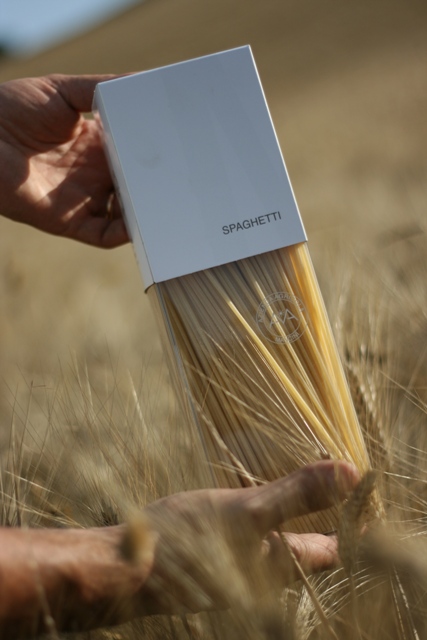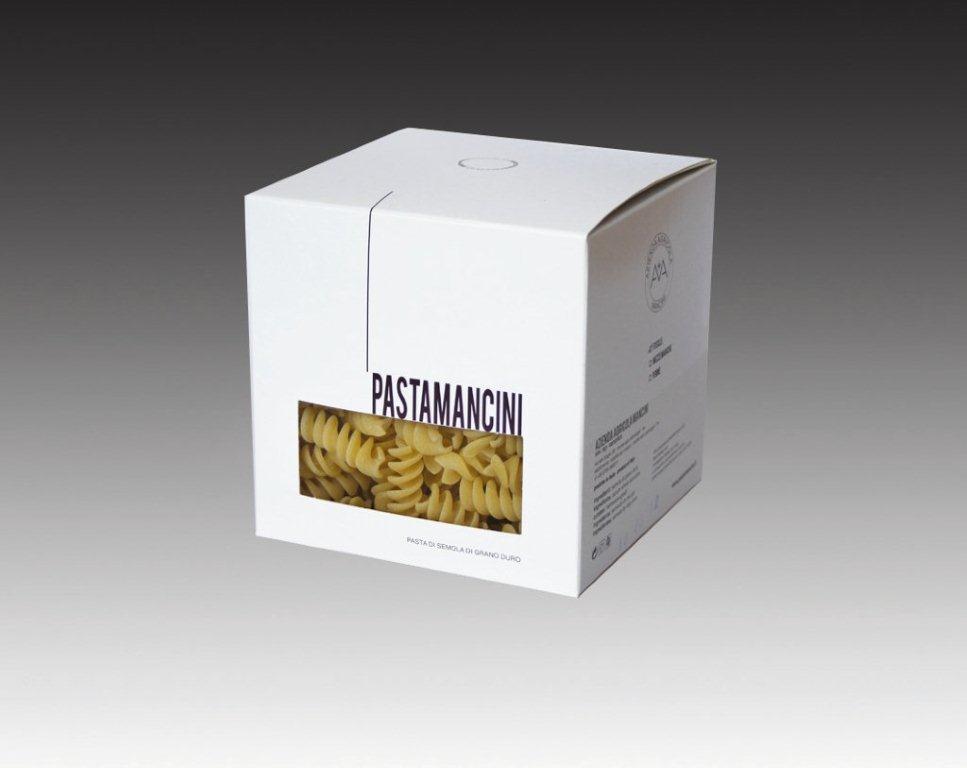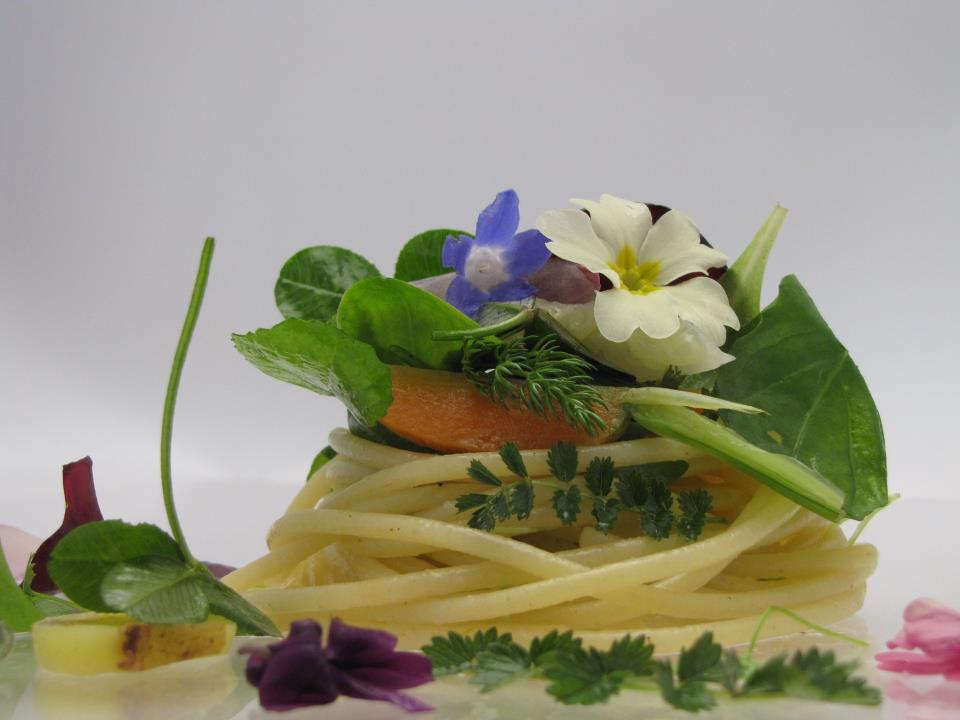 The history of Mancini farm, located at Monte San Pietrangeli (in the province of Fermo – Marche Region), starts in 1938 and tells about a path marked by love for agriculture, passion, and care in growing durum wheat, up to its processing, which allows obtaining Italian quality pasta. This is the summary of the events that have characterized Mancini family’s life in the last century: from grandfather Mariano, the 'seed' from which the idea that originated the company was born, dad Giuseppe, the 'fertile land', who received the seed and expanded the size of their company, to the son and current owner, Massimo Mancini, the 'ear' come to full maturity, who has devoted himself to his family’s reality in order to make the most of his studies and obtain a finished product from the raw materials at disposal, so completing the supply chain and establishing an independent production of pasta without relying on external pasta factories. As a matter of fact, in 2010 Massimo built among his wheat fields the pasta factory ‘Mancini’, within which, each day, the most technologically advanced tools are available in order to carry out highly traditional manufacturing processes.
The history of Mancini farm, located at Monte San Pietrangeli (in the province of Fermo – Marche Region), starts in 1938 and tells about a path marked by love for agriculture, passion, and care in growing durum wheat, up to its processing, which allows obtaining Italian quality pasta. This is the summary of the events that have characterized Mancini family’s life in the last century: from grandfather Mariano, the 'seed' from which the idea that originated the company was born, dad Giuseppe, the 'fertile land', who received the seed and expanded the size of their company, to the son and current owner, Massimo Mancini, the 'ear' come to full maturity, who has devoted himself to his family’s reality in order to make the most of his studies and obtain a finished product from the raw materials at disposal, so completing the supply chain and establishing an independent production of pasta without relying on external pasta factories. As a matter of fact, in 2010 Massimo built among his wheat fields the pasta factory ‘Mancini’, within which, each day, the most technologically advanced tools are available in order to carry out highly traditional manufacturing processes.
Password: Spaghetti!
 Integration with the surrounding area and a very short chain are the strengths of Mancini, which realizes about ten types of pasta for an annual quantity of 4,000 tons, with the aim of the highest possible quality. Two varieties of durum wheat are grown: San Carlo and Levante. Both allow obtaining a consistent and tasty pasta, characterized by strong wheat flavour and which stays firm after cooking. The colour of the pasta reflects the quality of the flour which is used, but also the one of its processing: by using bronze circular dies it is possible to resort to high extrusion pressures, so obtaining a pasta with sensitive surface roughness. Drying in static cells at low temperature allows then obtaining a product characterized by very absorbing structure in cooking, because it is gradually dried from the outside inwards. Among all formats, Spaghetti is the most appreciated one and more complex to achieve because it is difficult to obtain the same characteristics of homogeneity as for dough and structure in a particular volume, thin and developed in length. Mancini Spaghetti, which dry for 48 hours in the cells before being cut and packaged by hand, are characterized by soft, fleshy chewiness, ideal so that pasta may be a co-starring alongside with sauce. This shape has an identity value that makes it the most transverse and versatile in cooking. It constitutes 40% of annual production of the company Mancini and is highly appreciated both in Italy and abroad.
Integration with the surrounding area and a very short chain are the strengths of Mancini, which realizes about ten types of pasta for an annual quantity of 4,000 tons, with the aim of the highest possible quality. Two varieties of durum wheat are grown: San Carlo and Levante. Both allow obtaining a consistent and tasty pasta, characterized by strong wheat flavour and which stays firm after cooking. The colour of the pasta reflects the quality of the flour which is used, but also the one of its processing: by using bronze circular dies it is possible to resort to high extrusion pressures, so obtaining a pasta with sensitive surface roughness. Drying in static cells at low temperature allows then obtaining a product characterized by very absorbing structure in cooking, because it is gradually dried from the outside inwards. Among all formats, Spaghetti is the most appreciated one and more complex to achieve because it is difficult to obtain the same characteristics of homogeneity as for dough and structure in a particular volume, thin and developed in length. Mancini Spaghetti, which dry for 48 hours in the cells before being cut and packaged by hand, are characterized by soft, fleshy chewiness, ideal so that pasta may be a co-starring alongside with sauce. This shape has an identity value that makes it the most transverse and versatile in cooking. It constitutes 40% of annual production of the company Mancini and is highly appreciated both in Italy and abroad.
Towards American and Asian markets
Mancini exports about 20% of its production, mainly in Europe, especially in Austria, Switzerland, Germany, and France. In addition, during the last two years a significant opening toward the American and Asian markets has taken place, and collaborations that now allow the company to be present in the most important cities in almost every continent (New York, Los Angeles, Tokyo, Hong Kong, Shanghai, Singapore, Sydney, Saint Petersburg) have been started. In these Countries, as it happens in Italy, Mancini pasta is a niche product, intended mainly for catering (from medium-high level up to 3 Michelin starred restaurants) and specialized retail. Packaging has not been neglected, even if this company is mainly concerned about offering to the consumer a product not only attractive, but characterized by high quality. For this reason, packaging have been designed in order to reflect as closely as possible the philosophy of this company: boxes and envelopes, both available in the formats of g 500 and kg 1, enhance the product as much as possible, making it visible and at the same time easily identifiable, sending a message of transparency and authenticity. Quality and teamwork
Quality and teamwork
Massimo Mancini: «In our company, work is currently aimed at achieving the highest possible quality, as for both used methods and final products. The aim we pursue for the coming years consists in letting us know and appreciate, more than we did up to now, because our brand is still ‘young’. In my opinion, the most serious difficulty which occurs when entering foreign markets consists in finding reliable importers, who have the right visibility in the reference areas. For this, it is necessary to assess closely every importer, and at the same time it is essential to put together a team of trusted and responsible collaborators, with whom you can share efforts and rewards, because alone you never arrive very far».  by Chef Michele Biagiola from 'Le Case di Macerata' Wine Shop, 1 Michelin Star
by Chef Michele Biagiola from 'Le Case di Macerata' Wine Shop, 1 Michelin Star
